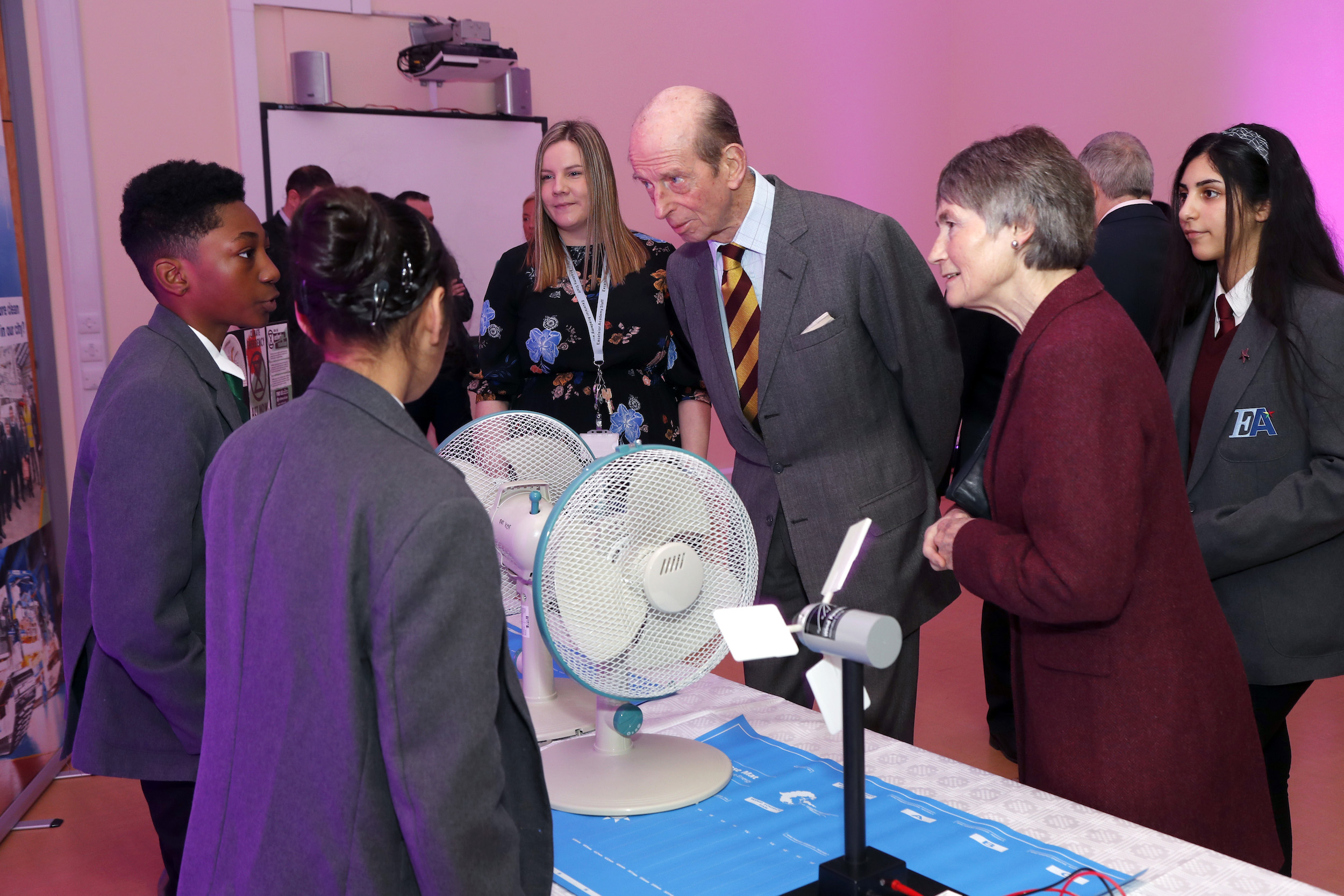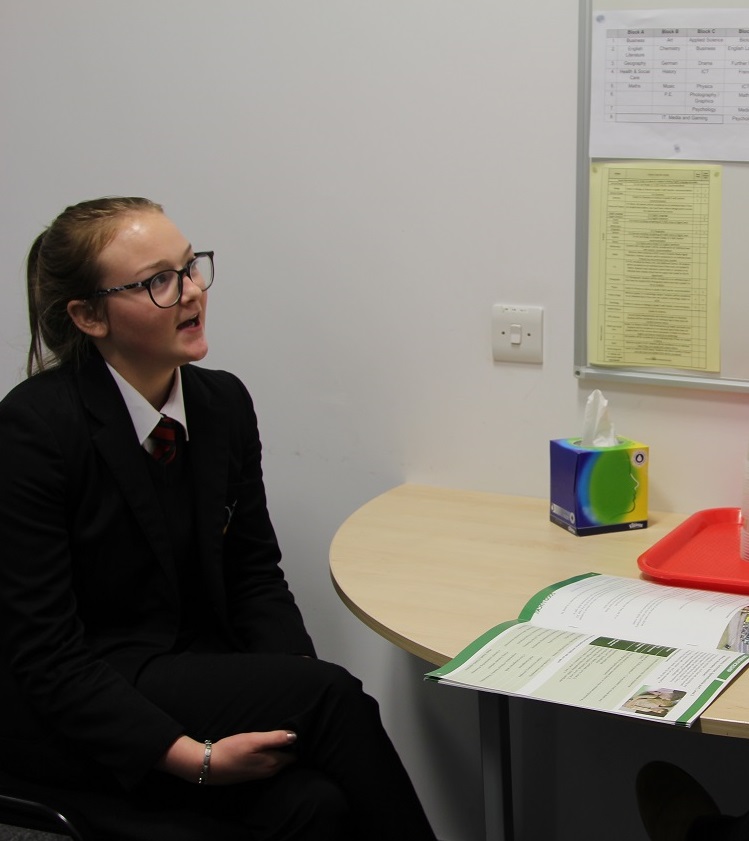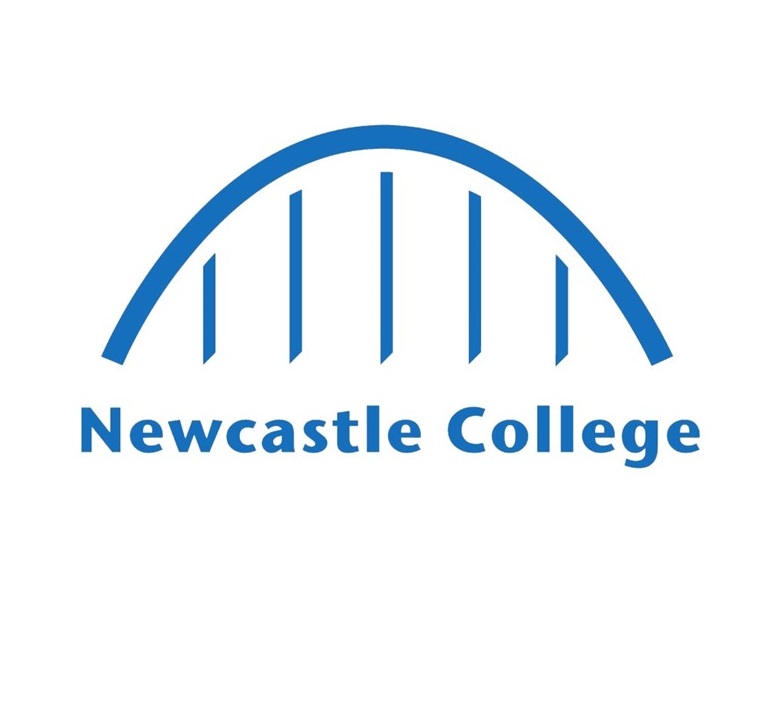
Excelsior Academy pupils impress HRH The Duke of Kent with project showcase exhibition
As part of a two day visit to the North East, HRH The Duke of Kent, met students and teachers from Excelsior Academy at a showcase exhibition in his capacity as Royal Patron of the Edge Foundation.
The visit included a showcase by pupils on a project set for them through the Edge Future Learning initiative. Pupils embarked on projects aligned to one of the main economic growth sectors in the North East. They worked in teams to solve real problems, helping them to develop transferable skills like team working and problem solving. These experiences provided cross-curricular learning supported by STEM experts from the businesses.
Pupils from Year 7 showcased projects on;
- Climate change and renewable energy, working alongside Northern Gas Networks, Northumbrian Water and the Port of Blyth.
- Housing and community needs, in partnership with New Tyne West Development Company and Newcastle University.
- Supporting vulnerable friends in the community as part of a continuing relationship with the People’s Kitchen.
Meanwhile, students from Year 8 showcased the work they have been completing with the Atlantic Dream Challenge – focusing on how local men, Paul Hopkins and Phil Pugh recently achieved the challenge of a lifetime, rowing across the Atlantic Ocean for charity.
Edge Future Learning is an initiative set up by the education charity, the Edge Foundation who are working to shape the future of education. The initiative has been running in the North East since 2018. The Edge Foundation leads the development of EFL, working with two Founding Partners – Ford Next Generation Learning and the North East Local Enterprise Partnership.
Alice Barnard, Chief Executive, the Edge Foundation, said:
“Project based learning like this helps prepare young people for life and work in the 21st Century. Students and staff at Excelsior Academy have worked extremely hard on these projects. Showcasing their work is an important part of students’ learning and development so we are delighted that our Royal Patron, The Duke of Kent was able to join us for this important celebration.”
David Thornton, Executive Principal, Excelsior Academy, said:
“Excelsior Academy is proud to be one of a few schools in the North East that is piloting this new approach to learning and by bringing learning to life we hope to transform outcomes for our students. The Showcase Exhibition presents a fantastic opportunity for students to be able to present their work to The Duke of Kent.”
Michelle Rainbow, Skills Director, North East Local Enterprise Partnership, said:
“By developing their approaches to careers learning, schools and colleges in the North East are focused on ensuring all young people gain the skills they need for their future. Building and sustaining relationships with employers and partners enables teachers to apply context and purpose to lesson content, engage students with the subject and help them understand real-world situations. Since introducing Edge Future Learning principles, teachers have seen an improvement in students’ motivation, oracy, teamwork and overall confidence.”





